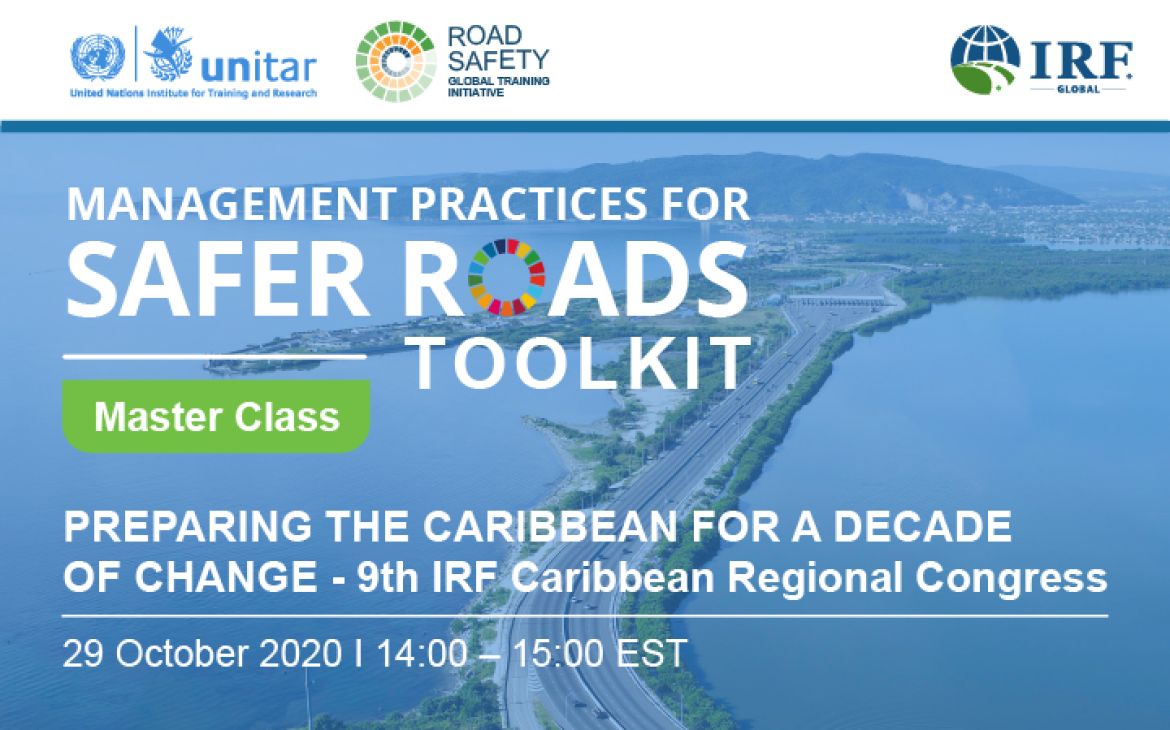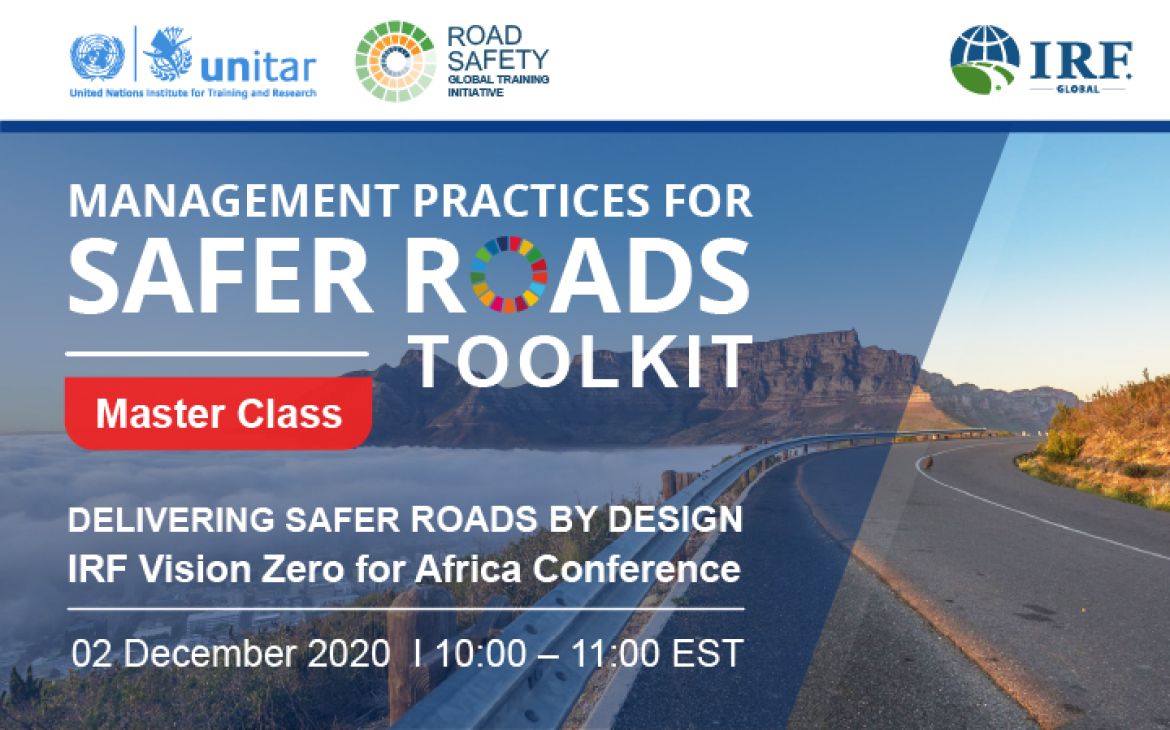04 December 2020, Geneva, Switzerland – UNITAR’s Road Safety Global Training Initiative and the International Road Federation (IRF) partnered to deliver a series of Master Classes on the “Management Practices for Safer Roads Toolkit” in the framework of regional conferences.
The first Master Class took place on the 29th of October 2020, in the framework of the 9th IRF Caribbean Regional Congress on “Preparing the Caribbean for a Decade of Change”. During this Master Class, 187 participants from 34 countries were introduced by UNITAR to the “Management Practices for Safer Roads Toolkit” and to a successful case study on Brazil that is featured in the Toolkit. Mr. André Colin, Management Consultant from Falconi Brazil, shared how Brazil has reduced road traffic fatalities and injuries by gathering and analyzing accidents data, by identifying crash “hot spots” and by improving the highest-risk roads. UNITAR also opened a call for expressions of interest in technical assistance for the implementation of the Toolkit’s methodology in cities.
The second Master Class took place on the 2nd of December 2020, in the framework of IRF Vision Zero for Africa Conference on “Delivering Safer Roads by Design”. Making use of the Toolkit and of the newly developed Learning App, this Master Class, attended by 406 participants, highlighted local demonstration projects implemented in different countries with a particular focus on a pilot project in Kwazulu-Natal in South Africa. UNITAR introduced the Toolkit and methodology and showed how the Toolkit is based on the premise that achieving road safety targets requires, among others, improving existing road infrastructure for the benefit of all road users, especially the most vulnerable. Following this presentation, Mr. Victor Chetty, Director of the Road Traffic Inspectorate of the Department of Transport from the Province of KwaZulu Natal in South Africa, shared the benefits of the Toolkit and showed how KwaZulu Natal gained reductions in road traffic fatalities and injuries by enforcing the police presence in the streets, and by identifying crash “hot spots”.
This successful collaboration with IRF allowed participants to explore more-in-depth the Toolkit with special emphasis on the need to improve road infrastructure, the importance of law enforcement, on the value of partnerships with a collaborative and multi-stakeholder approach to road safety, and on everyone’s responsibility as road users to put efforts on making roads safer for all. Both events gathered senior government authorities, and representatives and executives from the private sector.



